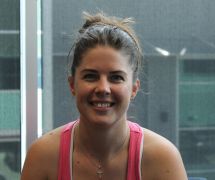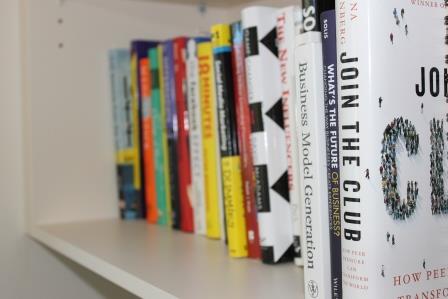Good Idea What Next
Moving from ‘What if’ to ‘How to’ – Universal Design Resources
 If products and services are designed so that they cater for a diverse community, then they can reach a much wider audience. Our community is diverse with young and old, people with disabilities, and people from different backgrounds speaking a variety of languages.
If products and services are designed so that they cater for a diverse community, then they can reach a much wider audience. Our community is diverse with young and old, people with disabilities, and people from different backgrounds speaking a variety of languages.
The ‘disability dichotomy’ is a mindset where there are standard products and then there are assistive technologies and products for disabled people. Universal Design is a set of principles that help us to find a middle ground where we design as inclusively and accessibly as possible for people of all ages and abilities. This means that something can be accessible for the person in a wheelchair as well as a mum with a pram, a teenager on crutches, an elderly person with a walker or a delivery driver with a trolley.
Ideas are the new black
 The phrase: “..............” are the new black is to say that something has become trendy, stylish and in-fashion. To say ‘Ideas are the new black’ is only half the story.
The phrase: “..............” are the new black is to say that something has become trendy, stylish and in-fashion. To say ‘Ideas are the new black’ is only half the story.
If we’re talking buzzwords, then really it’s the word ‘innovation’ that you see everywhere - from conference topics to Government funding priorities, marketing taglines, hackathons and pitch fests. While the word ‘innovation’ is the flavor of the month, ‘ideas’ have been around since the beginning of time. Maybe we need to think of ideas as being the building blocks of innovation, the slightly eccentric cousin - because if you think about it, ideas are dime a dozen and not all ideas are good, in fact some are downright bad.
Why your next strategic move should be to disrupt your work style
 Self-driving cars will hit the road at the end of this year. What do self-driving cars have to do with your business? Perhaps more than you previously thought.
Self-driving cars will hit the road at the end of this year. What do self-driving cars have to do with your business? Perhaps more than you previously thought.
Did you know that this year BMW will release 40 self-driving cars? Volvo also expects to release 100 self-driving cars this year and Tesla will enable full self-driving on all its vehicles in the same timeframe.
Safety has been at the top of most people’s list of concerns. However computers don’t get tired, distracted or drunk and they never text while driving. If developers can work out how to navigate the unpredictable nature of driving in traffic (and that does seem a big ask), they will have solved the safety issue.
Find the Starving Crowd
 You may believe your product could be bought by everyone, but trying to market to ‘everyone’ can be very expensive and not very practical. Finding the target market with the most pressing problem is a much better starting point.
You may believe your product could be bought by everyone, but trying to market to ‘everyone’ can be very expensive and not very practical. Finding the target market with the most pressing problem is a much better starting point.
If you were starting a fast food business you would want a large crowd of hungry people to sell to. That would be more important to your success than a fantastic advertising campaign, best quality food or even the cheapest price.
Stand Out from the Crowd
 Many of us go in to business because we are technically savvy and we want to do things our way. We often don’t go in to business to lead our Industry or with the objective of standing out from the crowd. While we want to be successful, and we need our customer base to love what we do, we often aren’t focused on what makes us different and sets us apart.
Many of us go in to business because we are technically savvy and we want to do things our way. We often don’t go in to business to lead our Industry or with the objective of standing out from the crowd. While we want to be successful, and we need our customer base to love what we do, we often aren’t focused on what makes us different and sets us apart.
Now with twenty plus years of business experience behind me – this is where I see so many start-ups go wrong.
People don’t want to harness the one thing that makes them outstanding: themselves.
Why you need a plan for your start-up
 Like in most parts of the world, the entrepreneurs in Canberra are often obsessed with the novelty of their idea when planning a new venture. Just remember though, the idea alone may not be enough to turn your business into a success.
Like in most parts of the world, the entrepreneurs in Canberra are often obsessed with the novelty of their idea when planning a new venture. Just remember though, the idea alone may not be enough to turn your business into a success.
The uniqueness of the idea may give you a head start but it is no guarantee of success. To achieve long-term success an entrepreneur must have the foresight to have a clear vision in mind. How you implement that vision and develop the product/service will ultimately determine your success. In summary, it’s all about the execution.
There are also many people who believe that business plans are a waste of time for start-ups due to the dynamic and evolving nature of such enterprises.
I don’t agree!
When do you need a Marketing Team?
 Getting initial users or customers is a very manual process because at the early stage you are still figuring things out. It often involves meeting in person and convincing the client to give your product or service a try and then holding their hand through the process, fixing unexpected bugs along the way.
Getting initial users or customers is a very manual process because at the early stage you are still figuring things out. It often involves meeting in person and convincing the client to give your product or service a try and then holding their hand through the process, fixing unexpected bugs along the way.
At this early stage of the business you are primarily focused on finding a core group of early adopters who will give your product or service a go and hopefully recommend it to people they know. You are focused on sales rather than marketing.
Is your team missing the foundations of great teamwork?
 Imagine you are the leader of a team where occasional blaming and backstabbing are the norm. Conflicts are frequent and they don't always result in a healthy outcome. Occasionally conflict has quite a significant impact on your team's productivity.
Imagine you are the leader of a team where occasional blaming and backstabbing are the norm. Conflicts are frequent and they don't always result in a healthy outcome. Occasionally conflict has quite a significant impact on your team's productivity.
You want to bring out the best in your people but your efforts don't seem to be working. In fact there are one or two people on your team who you're watching for underperformance.
You have some great people but a couple of personalities present challenges that you need to deal with. Your role can take the form of police person and judge but you would prefer to be a coach and guide to your team.
If you identify with this scenario then you're in a normal team. You are a typical manager with great intentions and a mixed team of diverse people with varying attitudes, skills and behaviours.
A little goes a long way
 While you don't hear much about Microcredit when it comes to economic development strategies, over the long term Microcredit loan programs can play an important role in supporting entrepreneurship and economic development.
While you don't hear much about Microcredit when it comes to economic development strategies, over the long term Microcredit loan programs can play an important role in supporting entrepreneurship and economic development.
Programs like the ACT Microcredit Loan Program delivered by Lighthouse Business Innovation Centre (Lighthouse), extend small loans ($3,000 interest free and up to $10,000 low-interest) to entrepreneurs that don't currently have access to traditional forms of capital.
Not only do these loans provide individuals with capital to start and grow their businesses, they also provide 6 months of tailored mentoring and business support.
The Australian IP Toolkit for Collaboration
 The Australian IP Toolkit for Collaboration (IP Toolkit) is designed to simplify and improve the way businesses and researchers work together.
The Australian IP Toolkit for Collaboration (IP Toolkit) is designed to simplify and improve the way businesses and researchers work together.
The IP Toolkit has three parts to help you use and manage intellectual property (IP) in collaboration:
1. Guides – how to develop partnerships between business and researchers and provide advice on how to manage intellectual (IP) in collaborations;
2. Tools – including a checklist of key IP issues that need to be considered before entering into collaborations and templates for a confidentiality agreement and term sheet.
3. Contracts – a template that can be used to draft up the contracts for collaborations.
Wholistic Approach Key to Telework Success
When implementing a telework program it is important to look at it from all angles. Nina Sochon explains it's more than just about HR and IT working together.
As experienced players will tell you, the problem with starting a flexible or remote work program is often that surprises can pop up along the way.
An overstressed worker, a technology glitch – nothing ever goes quite as planned and Murphy's law is never far away. One of the reasons for this could be that our thinking is too narrow.
Does it have legs? 3 things to ask yourself before you quit your day job
 With many Australians considering launching a small business each year, it's important that they give their business idea a once over before embarking on their entrepreneurial journey.
With many Australians considering launching a small business each year, it's important that they give their business idea a once over before embarking on their entrepreneurial journey.
"In other words", says Anna Pino CEO of Lighthouse Business Innovation Centre, "the 8,868 new businesses launched in Australia between the 2010/11 and 2011/12 financial years, should have asked themselves three important questions before deciding to go ahead".
An Interview with Kate Freeman
At Lighthouse we see plenty of people with good ideas; in fact some even have great ideas.
However, what we have noticed is that the entrepreneurial world is divided into 'thinkers' and 'doers'. There are some people who will never move beyond the idea stage. They will spend years thinking about the idea itself, but it never moves from the drawing board to actual execution.
That's one of the reasons investors focus on screening the individual rather than purely the idea. Investors are actually backing the person and their commitment to turning the idea into something great.
We caught up with Kate Freeman from the Healthy Eating Hub, a private nutrition practice in Canberra. Kate has been a client of Lighthouse for some time. Kate is not only a 'thinker' she is very much a 'doer'. We talked to Kate about her ambitious new project due to launch in January.


